Peter Vaughan, who has died aged 93, was one of the most distinctive and menacing of character actors on stage and screen in a career spanning seven decades and ranging from West End comedy to Dickens and Our Friends in the North on television, to movies with Frank Sinatra and Tallulah Bankhead, and encompassing a string of unpleasant authority figures. With his bulky figure, small eyes and prognathous jaw, he usually played the type of character you would not want to bump into on a dark night in a darker alley, even though, in real life, Vaughan was known for his conviviality, kindness to animals and devotion to his family.
For television audiences in the 1970s, he was a faux terrifying and hilarious Mr Big in Ronnie Barker’s prison comedy series Porridge: he ran the gaff as the glinting-eyed tobacco baron Harry Grout, who shared a cell with his budgerigar Seymour. And in the 80s, he was equally memorable as another, less amusing, Mr Big, Billy Fox, in Trevor Preston’s series Fox, for Thames TV, lording over the manor with his wife, played by Elizabeth Spriggs, and five sons, including Bernard Hill and Ray Winstone.
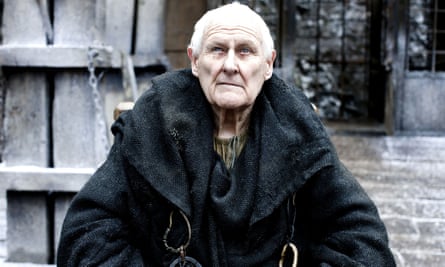
More recently, and in his last job, he attracted a cult following as Maester Aemon Targaryen in HBO’s Game of Thrones. He played the centenarian blind sage, maester to the men of the Night’s Watch guarding the ice wall at Castle Black, for five seasons.
In his last film, John Crowley’s Is Anybody There? (2008) he appeared – alongside Michael Caine, Sylvia Syms, Rosemary Harris, Leslie Phillips and Spriggs – as a first world war veteran in an old people’s home in the 80s.
It had been a long journey for the only child of a bank manager, Max Ohm, an Austrian immigrant, and his wife, Eva (nee Wright), a nurse. Peter was born in a flat above the bank in Wem, Shropshire, moving with his parents to Wellington, then Uttoxeter, where he attended the grammar school.
Showing a talent for drama, he was recruited at the age of 16 to the repertory company in the Grand, Wolverhampton, to play Simon the pie-boy in Sweeney Todd in 1939. He stayed, became an actor, and changed his surname from Ohm to Vaughan, though he never did so by deed poll. This early start in the profession, without formal training, was interrupted by the second world war. He served in the Royal Signals, eventually as an officer, in Normandy, Belgium and the far east, before returning to the Wolverhampton rep, followed by seasons in Macclesfield, Leicester and the Birmingham Rep, where he played Algy to John Neville’s Jack, Lally Bowers’s Lady Bracknell and Donald Pleasence’s Canon Chasuble; he and Pleasence became lifelong friends.
When Vaughan married the actor Billie Whitelaw, nine years his junior, in 1952 – they met while playing in the same company in a London fringe theatre that year – Pleasence moved in with the couple as a lodger before embarking on several marriages of his own.
Throughout the 50s Vaughan was busy in theatre while his television career took root. He appeared with the actor/manager Donald Wolfit in The Strong Are Lonely, an Austrian play about Jesuits in Paraguay, at the Haymarket in 1955, and a French comedy, Paddle Your Own Canoe, at the Criterion in 1958; the critic Harold Hobson eulogised Vaughan’s performance and said that the play never recovered after his exit.
But his real breakthrough came when the actor Dudley Sutton, whom he knew, introduced him to the playwright Joe Orton in a theatrical drinking bar. Orton was scouting for a heavyweight heterosexual actor to play Ed, an ordinary-looking man who was interested in having sex with boys, in his forthcoming play, Entertaining Mr Sloane (1964). Vaughan fitted the bill perfectly, teaming in Patrick Dromgoole’s production at the Arts theatre with Madge Ryan as Kath, his sister, and Sutton as sullen, sultry Mr Sloane, shared object of their carnal attentions.
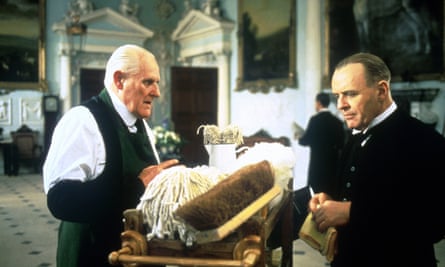
Either side of that performance (Harry Andrews played Ed in the subsequent 1970 film), Vaughan performed Bottom at the Glasgow Citizens and his Gladstone opposite Dorothy Tutin in Portrait of a Queen (1965) at the Vaudeville. His marriage to Whitelaw, never easy (according, at least, to Whitelaw in her autobiography) ended in divorce in 1966 and he married, in the same year, the actor Lillias Walker, whom he had known for some time.
Having made a film debut in Ralph Thomas’s The 39 Steps (1959), a remake of the Hitchcock classic, he played the first of many big screen police chiefs in John Paddy Carstairs’s The Devil’s Agent (1962), followed by the Boulting Brothers’ Rotten to the Core (1965), with Anton Rodgers and Eric Sykes; a British agent in The Naked Runner (1967), with Sinatra; and in Jack Gold’s The Bofors Gun (1967), with Nicol Williamson, Ian Holm and David Warner.
Notable appearances in Sam Peckinpah’s Straw Dogs (1971) and Karel Reisz’s The French Lieutenant’s Woman (1981) were followed by two great fantasy films by Terry Gilliam – Time Bandits (1981) and Brazil (1985) – in which his gift for manic extravagance was given full rein, playing an ogre in the first and a minister of information retrieval in the second.
His theatre work was maintained in a wonderful, diabolically possessed performance as the nearly-cuckolded Fitzdotterel in Ben Jonson’s The Devil Is an Ass at the Birmingham Rep and the National Theatre in 1976. A friendship formed with Robert Lindsay while playing his girlfriend’s father in Citizen Smith (1977-79) on television led to a brace of imposing performances – Lopakhin in The Cherry Orchard and Luka in Gorky’s The Lower Depths – in a company headed by Lindsay at the Royal Exchange in Manchester.
Vaughan was a tetchy Aussie widower in Michael Blakemore’s tender production of David Williamson’s Travelling North at the Lyric Hammersmith in 1980 and a self-styled, crypto-fascist security guard in Alan Ayckbourn’s glorious Seasons Greetings at the Greenwich theatre, and the Apollo, in 1982.
Thereafter, his theatre work was confined to touring in Priestley’s An Inspector Calls and Brighouse’s Hobson’s Choice until his final West End flourish in Harold Pinter’s superb 1996 revival of Reginald Rose’s Twelve Angry Men, in which he played a racist bigot, Juror No 10. In the same year, he was the trade unionist Felix Hutchinson, father to Christopher Eccleston’s Nicky and succumbing to Alzheimer’s, in Our Friends in the North, the BBC drama serial set over three decades by the writer Peter Flannery.
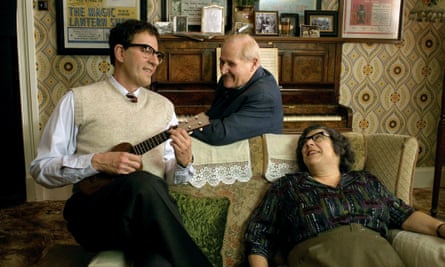
Many people would consider Felix his finest performance. It certainly ranks alongside his ex- ceptional turn – uncharacteristically quiet and intensely moving – as the old servant, father to Anthony Hopkins’s head butler, in James Ivory’s The Remains of the Day (1993); an accident with a tea tray he sends flying across the garden patio results in a demotion, by his own son, to mops-and-brushes duty.
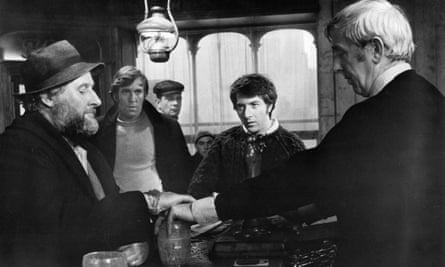
But he graced every film he was in, really, including Nicholas Hytner’s The Crucible (1996) with Daniel Day-Lewis and Paul Scofield, in which he played Giles Corey; Christopher Hampton’s The Secret Agent (1996) with Bob Hoskins and Patricia Arquette; Bille August’s Les Misérables (1997) with Liam Neeson, the ninth screen version of that Victor Hugo novel before the screen musical came along; and Stephen Hopkins’s The Life and Death of Peter Sellers (2003), with Geoffrey Rush brilliant as Sellers, Charlize Theron as Britt Ekland and Stanley Tucci as Stanley Kubrick.
Later in life, Vaughan and his wife lived on the Costa del Sol in Spain, but returned to live in West Sussex. In March he published a short book of anecdotal memoirs, Once a Villain.
Vaughan is survived by Lillias and their son, David, and by two stepdaughters, Alexandra and Victoria, and four grandchildren.
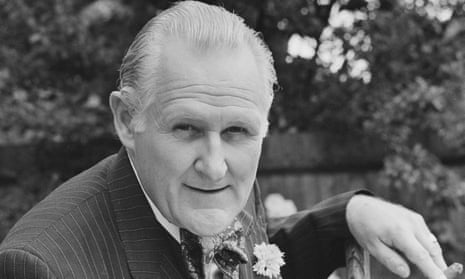
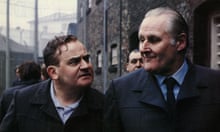

Comments (…)
Sign in or create your Guardian account to join the discussion